Picky Eaters
With Thanksgiving quickly approaching, do not let having a picky eater impact your time spent with family and friends. ABC Therapy would like to offer you these helpful feeding strategies to help reduce the stress during your Thanksgiving meals.
- Positioning– Children perform best when their feet are flat on a sturdy surface, eating surface is at waist level, and they’re able to reach all things in front of them.
- Variety– Offer an assortment of foods, both preferred and non-preferred options, but do not force your child to finish full amounts if they are unable.
- Volume- Offer small amounts of each food option so the child does not feel overwhelmed with the quantity on their plate. Children are more likely to try one bite of a new food than a whole helping.
- Choices- Offer numerous choices based on foods provided i.e “Would you prefer the corn or carrots on your plate?”
- Separate and Make it fun– Bring supplies like divided plates, a cupcake baking sheet, fun utensils, or different utensils for each food to help separate food item options.


- Messy Play– If your child is not willing to eat the foods, encourage describing the foods (color, texture, taste, etc.) and allow messy play so they can explore and interact with the options on their own terms. An example of messy play could be utilizing various cookie cutters to make playful shapes.
- Model– Demonstrate to your child what your expectations are with each food and how they should interact with it.
- Provide Praise but not Reward– Children feel accomplished when given praise like “I like how you took a bite out of ___”, “I see that you are trying hard to try ___”, “Good job touching ___”. However, providing a treat after eating a non-preferred food is not the best option for supporting carry over and independence in the skill.
- “All Done” bowl – Provide a safe place for the child to eliminate the foods from plate when they are finished to reduce overall anxiety.
- Back-up Plan– Pack the child’s f
 avorite foods in the case they are unwilling or unable to tolerate the foods provided.
avorite foods in the case they are unwilling or unable to tolerate the foods provided.
Hopefully these food-related strategies will help reduce stress for the whole family during the holiday season! Enjoy time with your family and don’t let picky eating impact the quality of time with loved ones. For more information pertaining to picky eating or other therapy-related resources, please visit https://www.abcpediatrictherapy.com/.
Happy Thanksgiving!
Read MoreMealtimes and food are such an important part of our society and culture. We eat together as families, we go out to restaurants with friends, and we bring appetizers and snacks to gatherings for all to enjoy. A significant amount of our social lives and family routines revolves in part around food. For families with children who are picky eaters, these enjoyable and social experiences can become stressful and conflict-causing situations.
Picky eating can lead to serious health concerns and have long-term effects on the well-being of the child. Picky eaters often have a very limited diet – eating only a handful of foods willingly. Because of this, picky eaters are not typically getting all their nutritional needs each day. This can lead to deficiencies, such as iron, calcium, zinc, and vitamin deficiencies for example, which can lead to other illnesses and complications later in life. These deficiencies can also have the following negative effects:
· decrease your child’s attention and energy levels, which can prevent them from being able to explore their environment and learn new information as efficiently
· decrease cognitive functioning
· weaken their immune system, making it harder to fight off illnesses and diseases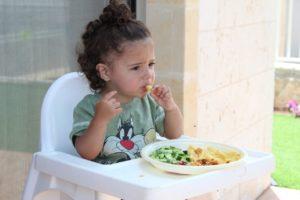
· increased risk for weight problems (under or overweight)
· dental problems if preferred foods are limited to snack items/sweets
Not only does picky eating affect a child’s health and well-being, it also negatively impacts the social well-being of the child and the family as a whole. As a parent, one of your primary roles is to provide for your child, and not being able to fulfill that role can be stressful, isolating, and extremely frustrating. Increased stress can lead to conflict in relationships, including the parent-child relationship, as well as the relationship of the parents. Picky eating can lead to refusal of foods and negative behaviors from the child (screaming, crying, etc.). These behaviors can all increase a parent’s stress and frustration, as well as lead to negative feelings and attitudes towards mealtimes and family routines. For the child, not being able to participate in snack or mealtimes at school or daycare can negatively impact his/her ability to interact with peers and learn social norms.
For more information on typical oral motor and feeding development in children, visit abcpediatrictherapy.com and review the developmental checklists. If you have concerns regarding picky eating, here are a few tips to try at home:
· Create a mealtime routine and try your best to stick to it. Children thrive with routines. Having a routine helps them understand what is happening right now and what to expect next. This can help lessen anxiety, especially when introducing and trying unfamiliar foods (which can be an anxiety-causing situation for many children). Try to eat meals around the same time each day and in the same place, such as at the table.
· Give your child choices. Children like to be in control and letting them pick from a few choices of what they will have on their plates is a good way to increase cooperation.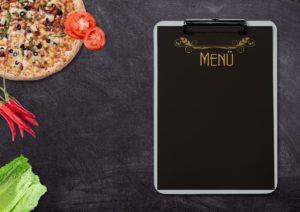
· Limit grazing. This will help your child establish an internal system that promotes eating when they are hungry rather than snacking throughout the day.
· When introducing new foods on the child’s plate, always offer foods that the child likes and will eat, as well.
· Try to boost the nutritional value of the foods in the child’s current diet. For example, if the child likes smoothies, mix in some yogurt for added protein or some spinach for added vitamins and minerals. Consider vitamins and other supplements, as well.
· Provide lots of positive feedback, even for small victories. If a child allows an undesired food to stay on his/her plate the whole meal instead of throwing it on the floor, tell the child how proud of them you are. Use sticker charts, rewards and incentives, etc. to increase cooperation.
If you try these suggestions and are still struggling with success at mealtimes, please reach out to us at ABC Pediatric Therapy Network. We can help! Family time should be full of wonderful memories and not stressful power struggles.,
Read More Skip to content
Skip to content
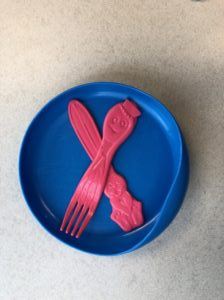
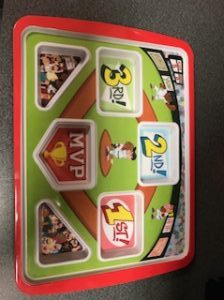
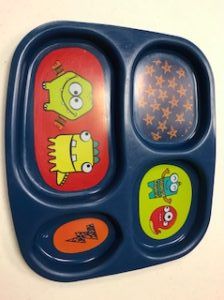
 avorite foods in the case they are unwilling or unable to tolerate the foods provided.
avorite foods in the case they are unwilling or unable to tolerate the foods provided.